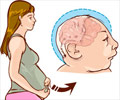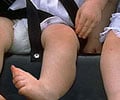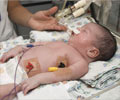- Birth defects are any abnormalities that occur during birth
- They can be caused by genetic differences or environmental factors. They are prevalent; each year, 3-4% of babies are born with some form of birth defect
- Every year in January, leading organizations join forces to raise awareness about birth defects and the impact these abnormalities have on families
January is National Birth Defects Awareness Month
Go to source).
Read More..
History of National Birth Defects Prevention Month
Birth defects in newborns occur throughout the world and contribute significantly to infant mortality. Unfortunately, a family history of birth problems is not required, as even those with a healthy bloodline might produce a kid with birth defects. While many birth abnormalities are treatable or curable, some are permanent and influence the child’s quality of life.What are Birth Defects
Birth defects are structural alterations that damage one or more organs. This includes the heart, brain, feet, hands, and so on. These problems develop during the first three months of pregnancy when the baby’s organs are developing.Common Birth Defects
A parent’s health or exposure to chemicals can have an impact on the baby’s growth. Congenital heart abnormalities, cleft lip, spina bifida, anotia, and microtia are some of the most common birth defects (1✔ ✔Trusted SourceJanuary is National Birth Defects Awareness Month
Go to source). Mouth and face deformities were detected in 6,776 babies per year in the United States between 1999 and 2001, whereas heart issues impacted 6,527 babies per year. Each year, 2,883 children were born with stomach and intestinal problems, and 5,799 newborns were born with musculoskeletal defects, which included arm and leg defects (2✔ ✔Trusted Source
National Birth Defects Awareness Month
Go to source).
Goal of National Birth Defects Prevention Month
Because of the serious consequences of birth defects, January has been designated as National Birth Defects Prevention Month. The goal is to educate and remind mothers about their involvement in ensuring the health of their pregnant children. Vaccinations and flu injections are also advised for the mother.Is it Possible to Prevent Birth Defects?
Although not all birth abnormalities can be avoided, there are things you can do to improve your chances of delivering a healthy kid. Here are some pointers:Make sure you are getting enough folic acid:
Every day, take a multivitamin containing 400 micrograms (mcg) of folic acid. Folic acid is a B vitamin that may aid in the prevention of neural tube abnormalities. These are conditions that affect the brain and spine of a baby.Get regular check-ups:
Your health is important before becoming pregnant. Even if this is not your first pregnancy, get a preconception check-up. Make sure you have all your immunizations up to date, especially the flu and COVID-19 shots. Fevers, which are frequent flu and COVID-19 symptoms, can raise the likelihood of conceiving a baby with specific birth abnormalities.Keep track of the medications you are taking:
Not all medications are safe to use while pregnant, and some can potentially cause birth abnormalities. Do not stop taking your medicine unless you speak to your provider first.Avoid alcohol, cigarettes, and illegal drugs:
These drugs raise the possibility of having a kid with major birth abnormalities, such as heart problems. Inform your provider if you require assistance in quitting (1✔ ✔Trusted Source
January is National Birth Defects Awareness Month
Go to source).
FAQs About Birth Defects
- Which months are the most crucial for birth defects?
Birth malformations are most common during the first three months of pregnancy. - Which is the most easily avoidable birth defect? The most avoidable disorders are those caused by prenatal alcohol consumption. Pregnant women must avoid intoxicants and stimulants because this is one of the simplest strategies to prevent birth defects.
- What vitamin aids in the prevention of birth defects?
Vitamins like folic acid aid in the prevention of birth defects.
Activities for National Birth Defects Prevention Month
Make a learning environment
People tend to listen to doctors’ recommendations since they have years of study and, in certain cases, experience. Help promote awareness by linking a doctor with a group of individuals.Consult with pregnant women
Pregnant women are the ones most in need of methods to protect their newborns against birth defects. To commemorate the day, share your knowledge and resources with pregnant women.Increase social media awareness
Create awareness for everyone on your list of friends or followers. Begin by discussing the causes of birth defects and how they can be avoided.
Importance of National Birth Defects Prevention Month
Creates Awareness
This month, extensive research is given to disseminating information about many birth abnormalities that can develop in new-born babies. It is critical in the quest for higher living standards.It helps to prevent birth defects
The goal of the month is to ensure that birth problems are reduced. This is accomplished by making the dos and don’ts readily available to pregnant women.It gathers support
The more you understand about birth defects and why they occur, the better you can support parents whose newborns are affected.
References:
- January is National Birth Defects Awareness Month - (https://www.marchofdimes.org/find-support/blog/january-national-birth-defects-awareness-month)
- National Birth Defects Awareness Month - (https://www.cdc.gov/ncbddd/birthdefects/awareness-month/index.html)
Source-Medindia













